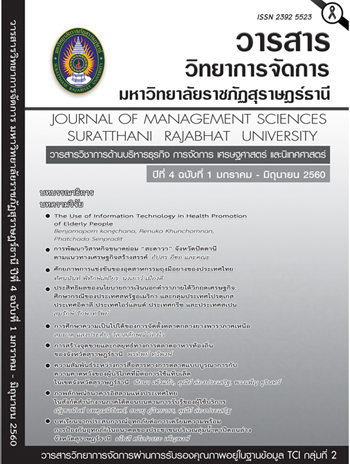The Effectiveness of the Unorthodox Monetary Policy under the Economic Crisis: The Case Study of the USA and the PIIGS
Main Article Content
Abstract
The purpose of this study is to analyze the economic situation of the countries faced the economic crisis in the 2000s: the USA and the PIIGS. The descriptive analysis and the secondary data are used to evaluate the causes of the crisis, a success of the QE policy, and the obstacles to stimulate these economies. The study showed that the QE programme, the unorthodox monetary policy, could make the economies get better but lower than the target level. The factors that influenced on the successfulness of the QE programme are both the economic and the social variables. The economic factors consisted of the huge budget deficit, the large current account deficit, the incremental non - performing loans, the bank credit deterioration, and the excess reserve increases. The social factors consisted of the corruptions, the banking balance sheet fraud, and the animal spirit. These crucial phenomena took part in making the unorthodox monetary policy has less effectiveness.To enhance the effectiveness of the unorthodox monetary policy, the authority of these countries should set the supportive policy for fire economy up such as labor and production quality adjustment in order to enhance both quality and quantity of production. These policies will bring to elevate the international trade competitiveness as well as the economic growth.


